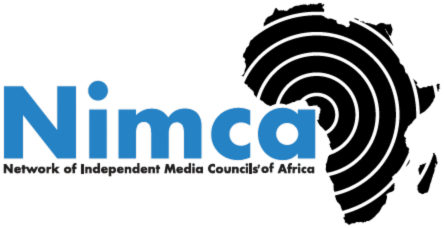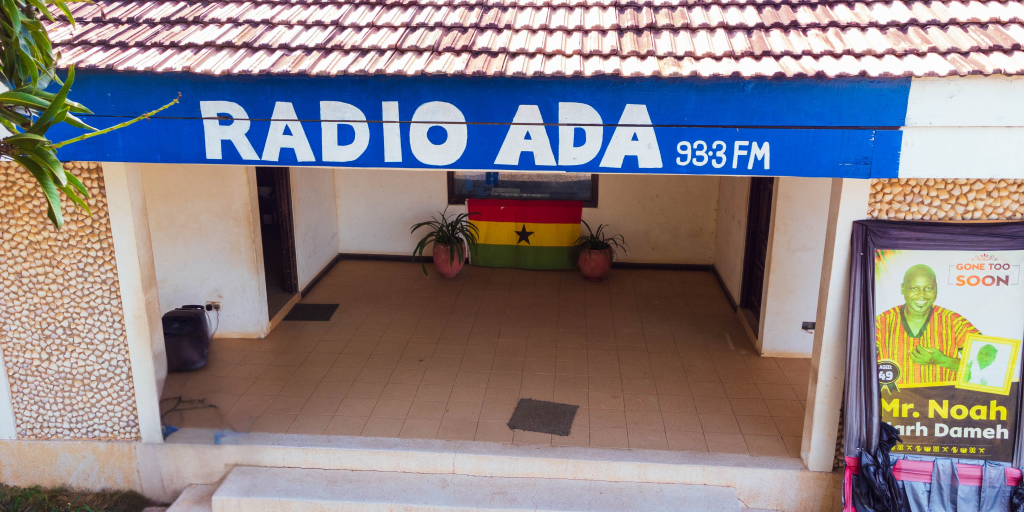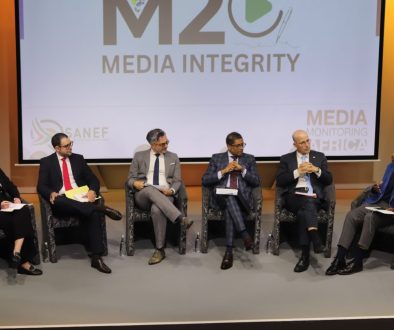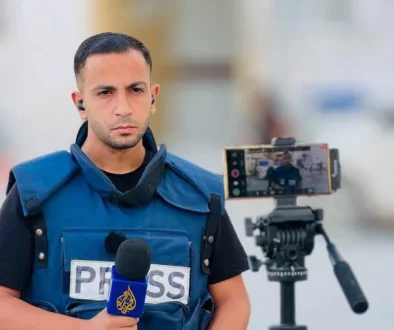Political realities show vital need for the Media Foundation for West Africa
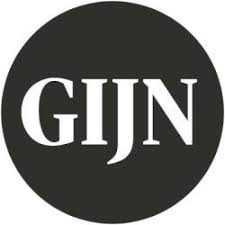 When Ghanaian journalist Noah Dameh was relentlessly harassed – targeted by police, dragged to court, and driven to failing health – for exposing a business magnate’s exploitative monopoly over the Songor Lagoon salt mine on Ghana’s eastern coast, it was the Media Foundation for West Africa (MFWA) that took on his reporting to ensure he was not silenced, even after his death.
When Ghanaian journalist Noah Dameh was relentlessly harassed – targeted by police, dragged to court, and driven to failing health – for exposing a business magnate’s exploitative monopoly over the Songor Lagoon salt mine on Ghana’s eastern coast, it was the Media Foundation for West Africa (MFWA) that took on his reporting to ensure he was not silenced, even after his death.
The MFWA has had to navigate its mission simultaneously in democratic and autocratic states in the region, operating in ever-shifting political and media environments.
Dameh began receiving texts from Ghana’s Criminal Investigative Department in response to his reporting in May 2022. The first message invited him to come to the police station over a Facebook post drawing attention to the activities of the salt-mining company – and its CEO – that had been awarded a contentious 39 000-acre mining concession for West Africa’s largest salt deposit.
He argued that the company was depriving the local Ada communities of their traditional salt mining livelihood, and that police and security forces responded with brutality against locals when they protested.
A veteran journalist with the local radio station Radio Ada, Dameh continued to report on corruption, exploitation and human rights abuses against Ada residents, including arbitrary arrests, detentions, brutality and prosecutions
He faced a long legal battle for his reporting, including a defamation lawsuit, various arrests and detentions, and criminal charges for ‘publishing false information’.
In March 2023, he was jailed for a week without access to medication for his chronic health conditions. That same month, the MFWA petitioned Ghana’s Attorney General to intervene. But Dameh died in September 2023 after prolonged health issues, at the age of 49, just days before the trial had been set.
‘If one day they hear that I have died a mysterious death, it is about the Songor Lagoon,’ Dameh said in a video recording a few months before his death. ‘That issue is what would have put me into the grave because of the frequent harassment, persecution, prosecution, and putting me behind bars.’
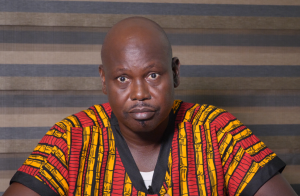
After Dameh died, MFWA continued to amplify his reporting and call attention to the pattern of abuse against Ada residents. Through its reporting, the MFWA found that the contract given to the businessman contravened a 1991 legal agreement for salt mining in Ghana, stipulating that artisanal salt miners would henceforth not be sidelined from any contract made with a private company.
‘On the back of our story, the citizens were able to go back to the salt mine because the public became aware,’ says Kwaku Asante, programme manager for the independent journalism project at MFWA. ‘[The businessman] could no longer push them, attack them, and harm them with thugs and policemen.’
‘Worsening conditions’
‘The rise of authoritarianism across West Africa and even in Africa, and worsening conditions, have made it very difficult for media houses to do the very critical reporting, the accountability journalism we expect them to do.’ – MFWA Programme Manager Kwaku Asante
The MFWA — a GIJN member since 2024 — is a regional non-governmental organisation based in Ghana’s capital, Accra, with national partner organisations in 15 other West African countries. It works to defend press freedom and amplify the voices of journalists who report on the powerful – through law and reform advocacy, engaging its regional network, and publishing reports and articles, among other areas of focus such as good governance or digital rights.
It currently operates with a core staff of 24, in addition to researchers and correspondents across West Africa.
Founded in 1997 by Ghanaian professor and consultant Kwame Karikari to defend freedom of expression, the Foundation has had to navigate its mission simultaneously in democratic and autocratic states in the region, operating in ever-shifting political and media environments.
Protecting the right to free speech in these spaces requires diverse approaches. There have been at least 13 successful coups in West Africa since MFWA was founded — with a notable surge in recent years.
The 2025 Reporters Without Borders World Press Freedom Index noted the erosion of press freedom in West Africa, with many countries in the region falling in the rankings, as well as the declining security situation in the Sahel region.
By 2027, the foundation will have been around for three decades, protecting journalists from persecution and helping them get published by shielding them from political blowback.
‘With our engagement with our partner organisations in those respective countries, we are able to get information out,’ says Dora Boamah Mawutor, programme director for MFWA’s freedom of expression and digital rights programmes. ‘We believe that there must be a peaceful West Africa, where everyone has the right to express himself or herself freely.’
Karikari started MFWA four years into Ghana’s return to democratic governance – when, after more than 30 years of military and one-party rule, elections were held in January 1992.
At that time, there were five countries in the West African subregion led by oppressive military regimes – 28 years later, that number has reduced by only one, after coups have resulted in one-party or military rule in Burkina Faso, Guinea, Mali, and Niger. These political realities show the enduring need for MFWA.
Karikari’s initial idea was for the organisation to defend press freedom across West Africa, including Mauritania, but the foundation has evolved to do more, such as providing legal services to imprisoned reporters through its network of lawyers, and publishing crucial investigations that would have been too risky for local newsrooms to take on
‘Increasingly, the rise of authoritarianism across West Africa and even in Africa, and worsening conditions, have made it very difficult for media houses to do the very critical reporting, the accountability journalism we expect them to do,’ Asante says.
Supporting targeted journalists
In military-ruled Burkina Faso, the assault on press freedom has intensified under the military government led by Ibrahim Traoré, creating an atmosphere of fear and repression for journalists daring to speak out. MFWA is one of the few press freedom organisations helping journalists to continue reporting on the junta.
To further silence the press, journalists in Burkina Faso are being conscripted into the military, which MFWA’s Mawutor explained has set the stage for the erosion of press freedom across the wider Sahel region.
MFWA expanded its work further in 2021 when it launched The Fourth Estate, a public interest newsroom that publishes daring investigations that often puts journalists in the crosshairs of politicians.
On 24 March 2025, Guezouma Sanogo, president of the Burkina Faso Journalists Association (AJB), was abducted by plainclothes intelligence officers, three days after holding a press conference to call for an end to the repressive treatment of journalists in Burkina Faso.
Sanogo would later appear in an online video, his head shaved and wearing military fatigues. Previously, three other journalists had been forcibly conscripted in the same way.
Mawutor explains that her organisation must be strategic to maintain communication with independent media in these military states. For example, MFWA keeps ties with journalists in exile from Burkina Faso and helps shelter them from their oppressive governments, such as by communicating through mulitple chains so conversations can’t be tracked or tapped.
In June 2020, MFWA collaborated with other press freedom organisations to secure the release of Ignace Sossou, a Beninese reporter who was arrested for allegedly quoting a government official out of context. Their advocacy helped shave off 12 months from Sossou’s 18-month sentence.
‘I cannot thank the MFWA enough for the consistent advocacy you embarked on, which contributed to my successful appeal and subsequent release from detention,’ Sossou said during a visit to MFWA’s offices after his release. ‘
The prison conditions were terrible, but your fight on my behalf, alongside the efforts of other press freedom organizations, always kept my spirit up.’
GLOBAL INVESTIGATIVE JOURNALISM NETWORK
PICTURE: Radio Ada journalist Noah Dameh, an ardent critic of a deal which was depriving local communities on Ghana’s eastern coast of their traditional livelihood, predicted his own death in an interview in MFWA’s public interest newsroom, The Fourth Estate, four months before his death. This is a front view of Radio Ada’s headquarters
This article was first published here
